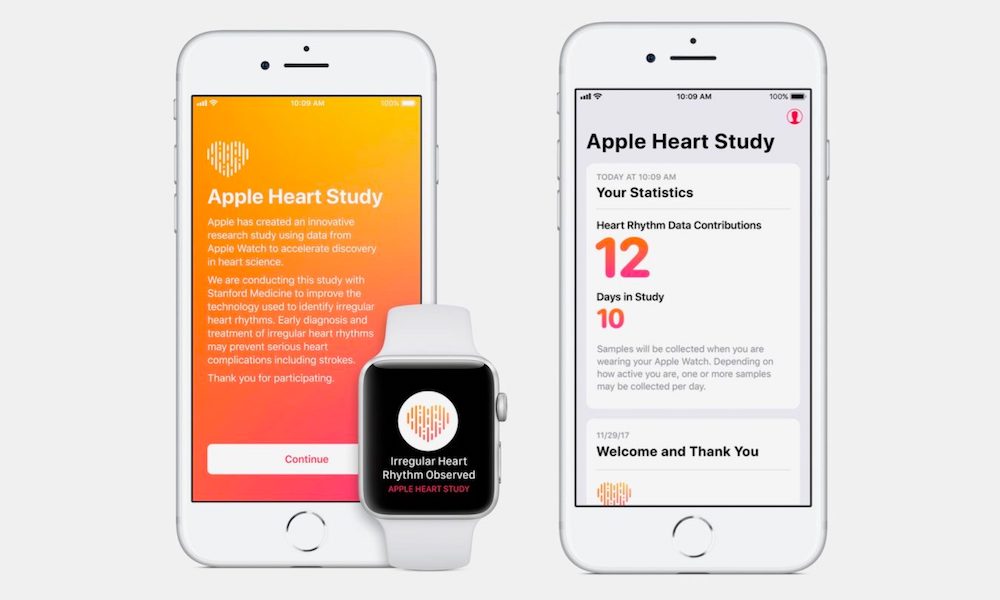Apple’s Highly-Anticipated AFib Heart Study Officially Begins

Toggle Dark Mode
Apple on Thursday announced the official U.S. launch of its anticipated Apple Heart Study — a joint, ResearchKit- and app-based study being conducted in collaboration with doctors and researchers at Stanford University School of Medicine. Utilizing the Apple Watch’s in-built heart rate sensor, researchers will collect eligible participants’ “irregular heart rhythm” data, while notifying those who may be experiencing a condition known as atrial fibrillation (AFib).
“Every week we receive incredible customer letters about how Apple Watch has affected their lives, including learning that they have AFib. These stories inspire us and we’re determined to do more to help people understand their health,” said Apple’s Chief Operating Officer, Jeff Williams, adding that by “Working alongside the medical community, not only can we inform people of certain health conditions, we also hope to advance discoveries in heart science.”
What Is AFib?
Atrial fibrillation, or flutter, according to Cedar’s-Sinai, is “a condition in which electrical charges in the heart are sent very rapidly to the upper chambers, causing them to contract rapidly,” ultimately “stimulating the lower chambers in the heart” to “pump faster and less efficiently than normal.”
“During atrial fibrillation, the atria do not completely pump blood into the ventricles. Eventually, some of the blood in the atria starts to stagnate and clot. If these clots break up or break off, they may pass into the left ventricle, travel through the bloodstream and block a smaller artery. If this happens in the brain, it can cause a stroke.”
Apple Heart Study Method
All variants of the Apple Watch are equipped with what’s repeatedly been christened one of the most accurate heart rate monitors available in a wearable device. To calculate heart rate and rhythm in the inherent study, Apple Watch’s heart rate sensor will utilize its green LED lights, flashing at a rate of hundreds/times per second, and “light-sensitive photodiodes” to help detect the amount of blood flowing through a user’s wrist.
Accordingly, if an irregular heart rhythm is detected, participants will receive a notification on their Apple Watch and iPhone, a free consultation with one of the study’s doctors, and an electrocardiogram (ECG) patch to wear for additional monitoring.
“Through the Apple Heart Study, Stanford Medicine faculty will explore how technology like Apple Watch’s heart rate sensor can help usher in a new era of proactive health care central to our Precision Health approach,” said Lloyd Minor, Dean of Stanford University School of Medicine. “We’re excited to work with Apple on this breakthrough heart study.”
How to Participate
The Apple Heart Study app began rolling out on the U.S. App Store Thursday morning — and those who own an Apple Watch Series 1, 2, or 3, as well as an iPhone running iOS 11 or later, and are at least 22 years old can download the app and register now. Unfortunately, Apple says the study is not intended for those who’ve already been determined to have AFib.
Irregular heart rhythms are not always symptoms of a more serious, underlying condition; however AFib, or atrial flutter, is among the leading causes of stoke, which can be fatal.






